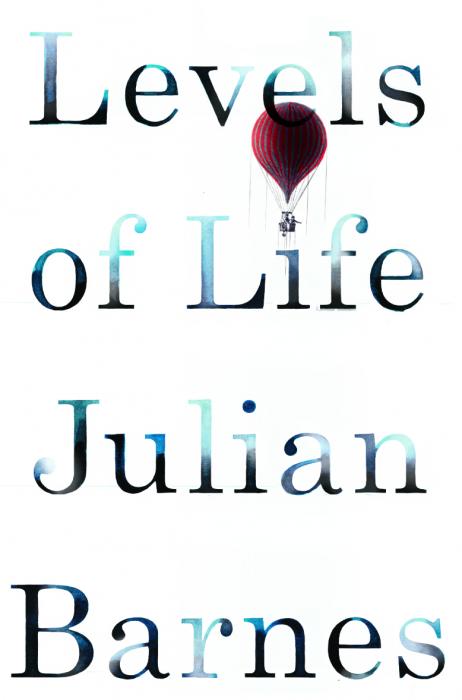In our General Index we give stars to
those books that we feel are the most
charming, sad, wise, forthright,
honest or true. (Or all of these).
Here are fifteen memorable stars from earlier this year.
Les Murray
Carcanet Press

The irony is that Murray can out-postmodern the postmodernists, with their accent on the machinery of contemporary life. This is his riff on that breathless moment when the airplane has "come to a complete stop" and we've stood up, pulling stuff out of the overheads, caught in that breathless moment before the doors open:Soon we'll all be standing
encumbered and forbidding in the aisles
till the heads of those fartherest forward
start rocking side to side, leaving,
and that will spread back:
we'll all start swaying along as
people do on planks but not on streets,
our heads tick-tocking with times
that are wrong everywhere.What the poet has managed to merge here is a bag of associations: being weighed down (baggage, life); an ominous rocking or countdown with clocks; a dance maybe, along with pirates (and their planks!); and even (how did he do it?) slipping in a jet lag there at the very end.
We're trying to think of the last time we picked up a fat book of poetry by a single author and got as engrossed as we did with this one. There was, for example, so many years ago Howard Nemerov: I read him through [we wrote] first to last; slept, woke up, read it back to first, marking the pages, wondering "Where has he been all my life?" We also think on the first time we looked into the works of Wislawa Szymborska, the first time we stumbled across Apollinaire (it was about time!), when we ran into Tim Clark in the LRB (writing about Manet and Monet and Marx and Freud for crumb's sakes). Too, there was Quan Berry, and, praise the lord, New Direction's collection of Roberto Bolaño.
Murray is hot. I leave you with one poem that shows him at his best. It's written in none but the simplest language, yet it manages to capture a whole era: understated, awful, precise, sad. It's called "Dog Fox Field."
"The test for feeblemindedness was, they had to make up
a sentence using the words dog, fox and field."
---Judgement at NurembergThese were no leaders, but they were first
into the dark on Dog Fox Field:Anna who rocked her head, and Paul
who grew big and yet giggled small,Irma who looked Chinese, and Hans
who knew his world as a fox knows a field.Hunted with needles, exposed, unfed,
this time in their thousands they bore sad cutsfor having gaped, and shuttled, and failed
to field the lore of prey and houndthey then had to thump and cry in the vans
that ran while stopped in Dog Fox Field.Our sentries, whose holocaust does not end,
they show us when we cross into Dog Fox Field.Go to the complete
review
MommyblogsAnd the Changing Face of Motherhood
May Friedman
(University of Toronto Press)
- I felt the way the wind was blowing. Genetic Selection will become a reality. I just participated in the process. I did it for selfish reasons --- because I wanted to hear that my baby girl was ok.
Friedman's astute comments on this particular blog: "In the act of writing she challenges those who read it to similarly grapple with the ambivalent and contested spaces of motherhood, and in this grappling hybrid mothering emerges. This hybridity is especially obvious around tropes of the good mother."
And then there is this view of one mother concerning "all the poison cast towards Nadya Suleman" (who bore octuplets in 2009): "Got pregnant the old-fashioned way? She's a slut. Used a sperm donor and hired a nanny? She's a selfish old maid. Needs some public assistance? She's a leech on the taxpayer. Self-supporting? She's a workaholic."
- Can't anyone else see that the judgement hurled at Suleman is just a stone's throw from the judgement hurled at any single mother, regardless of how she came by her children.
I had never heard of "mamaspheres" before coming across this book. Might be because I am a workaholic, just didn't have the time to seek such things out. But Mommyblogs is a dream of good scholarship and wisdom. There is a neat encapsulation of the history of blogs and the radical change in what the author calls "the matricentric space." Her vision of blogs (and the internet) is rich.
She speaks of a "precariousness born of sheer abundance" in blogs out there. She discusses the fragility of it all: that one day a blogger may decide that she is going to drop the whole thing, and, unlike a book (which we own, keep on the shelf, can peruse anytime we want), her valued opinions --- and her equally valuable correspondence with readers --- will just disappear.
To create Mommyblogs, Friedman went through thousands of them, including the four most popular, Dooce, Finslippy, Fussy, and Her Bad Mother. Of the almost 200 places Friedman lists in the blogsphere, the names I liked the most were
- Gorillabuns
- Lesbian Dad
- A Frog in My Soup
- Baby Making Machine
- Attack of the Redneck Mommy
- Adorable Device of Destruction
- Cold Noodles for Breakfast
- Mrs. Fussypants
- Naked on Roller Skates
Jill Walker wrote that "the best way to understand blogging is to immerse yourself in it." Some readers of Mommyblogs may be put off by references to the likes of Mikhail Bakhtin ("cyborg storytelling" as "polyphony") or Michel Foucault (discourses on power) ... along with other elements of "postmodernism" which many of us are still grappling to understand.
Forget it. There are too many gems here that are worth your while. The new and, for me, very original concepts are sprinkled around like jewels, and they make reading the book worth your time and trouble. For instance, there is the idea that with birth one's "prior self" may become "irrelevant;" or the thought that a blog offers a different way of seeing "relational space;" or a simple idea, formulated in one blog that begins, "I have always been blatantly honest with you, blog people, even when my position is childish or selfish or silly. And so I am honest now:"
- Staying home with my kids is boring.
review
Living on Uganda Time
Douglas Cruickshank
(Verflectin Media)



 Ms Leach has a nigh about perfect ear, plus a tremendous vocabulary ... can turn a simple disquisition into a funny ride, whether it is underwater with the beavers, around halos ("Halos cannot be affixed to the head with pins and clips"), or running with the dingoes. Dingoes appear in the chapter on goats and Pinta Island, wherever that may be. The goats ate the tree ferns and the turtles, who used the ferns for food, disappeared. People say that dingoes should be imported to eat the goats, Trouble is, to get rid of the dingoes, one would have to bring in crocodiles. And to be rid of the crocodiles, we'd have to import hippopotamuses from "across the ocean and set them loose to squash everything, a stable but sad climax."
Ms Leach has a nigh about perfect ear, plus a tremendous vocabulary ... can turn a simple disquisition into a funny ride, whether it is underwater with the beavers, around halos ("Halos cannot be affixed to the head with pins and clips"), or running with the dingoes. Dingoes appear in the chapter on goats and Pinta Island, wherever that may be. The goats ate the tree ferns and the turtles, who used the ferns for food, disappeared. People say that dingoes should be imported to eat the goats, Trouble is, to get rid of the dingoes, one would have to bring in crocodiles. And to be rid of the crocodiles, we'd have to import hippopotamuses from "across the ocean and set them loose to squash everything, a stable but sad climax." 









 That first year of the Garbage Project was one of discoveries large and small. That garbage itself was an unknown world --- everything learned about it was new --- and thus held the fascination that a trip up the Congo in the 19th Century would have.
That first year of the Garbage Project was one of discoveries large and small. That garbage itself was an unknown world --- everything learned about it was new --- and thus held the fascination that a trip up the Congo in the 19th Century would have.